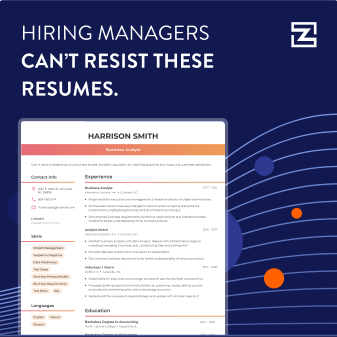
Summary. To write a good thank-you letter for a reference, you should greet the reference writer by name, express your gratitude for the reference, and acknowledge the significance of their reference. You can send this in an email or handwritten note.

Graciously asking for favors is an invaluable professional skill, and part of that involves offering thanks after the fact.
Letters of thanks are quite common in the professional world, whether you’re thanking someone for being an academic reference, or a professional reference, a little bit of gratitude goes a long way
Here are a few reasons why it’s important to say thank you and why an email thank-you letter for a professional reference is a smart move:
In the process of asking for a reference letter, the hard part is already over. You’ve already made the ask, gotten a yes, and utilized the reference. Now comes the final step, writing the thank-you letter.
When it comes to writing a thank-you email for a reference, here are some basic guidelines for everything you need to include:
Once you have these simple rules down, you’ll be able to write email thank-you letters with no problems.
Below are some sample letters you can refer to when writing your own thank-you email. Vary your greeting, closing, and tone to match your desired formality or familiarity.
Thanking a Reference with a General Update Email Example
Subject: [Liana Moore Reference]
Dear Elliot,
I want to sincerely thank you for the reference you provided me for the digital marketing strategist position at Lind LLC. I met with the hiring manager Liz Hurley earlier today and had an excellent interview. She says I can expect to hear back from her within a week.
I appreciate your help and support immensely. I’m certain that your endorsement was a deciding factor in my receiving an interview, as your word carries a lot of weight in this industry.
Thank you again.
Regards,
Liana Moore
Thanking a Reference When You’ve Landed the Job Email Example
Subject: [Roger Hamish — Thank You for the Reference]
Hey Alicia,
Thank you so much for the reference you gave to Larkin Ltd on my behalf. I just wanted to give you a quick update and let you know that I was offered the position today.
I know that your good word played a large part in opening up this new opportunity for me. I have deep gratitude for your help, and I won’t forget it.
Many thanks,
Roger Hamish
Thanking an Academic Reference Email Example
Subject: [Reference, Mia Thorne]
Dear Ms. Stone —
Thank you for the recommendation letter you provided for my college application process. I have been accepted to three colleges so far, and I have been offered a scholarship to one.
I wouldn’t have been able to do this without the help of your letter of recommendation. I greatly appreciate your willingness to help with this process.
Let me know if there is any way I can return the favor!
Sincerely,
Mia Thorne
While writing a thank-you email is usually a good idea, there are a few circumstances when not to send one.
These are all professional alternatives to “Thank you,” which can get overused in a thank-you letter.
How To Write A Thank-You Letter For A Reference
Amy Sanchez
Executive Career and Leadership Coach
Swim Against the Current
Taking the time to write a thank you letter, while it seems basic, is a gesture not everyone takes the time to do. t’s an important thing to do and helps you continue to nurture a valuable relationship. Plus, it’s just the right thing to do to acknowledge when people take the time and effort to sing your praises.
Once you’ve landed your next role, it’s a good idea to let the person who wrote you the recommendation know about your new role. It will make them feel good that they were able to help you and perhaps there will be an opportunity for future collaboration.
How To Write A Thank-You Letter For A Reference
Yuleni Pulido
Professional Resume Writer
I always advise my clients to send a thank-you letter within 24 hours after an interview. If the interview is on Friday, I recommend waiting until Monday after lunch. This way your email will be less likely to be overlooked among the numerous emails that come through on the weekend. By lunch time, the recipient has probably updated their inbox and your thank you letter will come in as a fresh email.
Use your thank-you letter as an opportunity to emphasize on the areas you and the employer connected on. If needed, tactfully touch upon any weak points that surfaced during the interview.
How To Write A Thank-You Letter For A Reference Tips
Swanee Griffin
Owner and Principal Career Consultant at Artistry Resume Writing Service
One thing I can say that I have learned as not only a Resume Writer and Career Coach is that a simple “thank you” is not as common as you think. It makes you stand out as a long-term business relationship. Learning to give thanks to those that help forms a long-term professional bond for more than just the job search. I’ve had thank you letters lead to opportunities for additional networking, private groups, and invitations to professional associations. Not to mention, it would be the ultimate thank you to return the favor. Hop on their LinkedIn profile and give them a personal recommendation. What better way to show thanks than to spotlight them publicly?
How To Write A Thank-You Letter For A Reference From An Expert
Danny MacIntyre
Executive Career Coach and Resume Writer
“Saying thank you is more than good manners, it is good spirituality.” –Alfred Painter
Also, I always advise my clients to be specific in their thank you notes/letters by referring to some of the important exchanges in the interview. This reminds the interviewers of the positive/constructive moments and why they liked you. Also, I recommend candidates send the thank you note that day as decisions are usually made shortly after all candidates are interviewed. Most thank you notes arrive too late; after a decision has already been made.
How useful was this post?
Click on a star to rate it!
Average rating / 5. Vote count:
No votes so far! Be the first to rate this post.
Articles In Post Interview Guide Reference Requests
Conor McMahon is a writer for Zippia, with previous experience in the nonprofit, customer service and technical support industries. He has a degree in Music Industry from Northeastern University and in his free time he plays guitar with his friends. Conor enjoys creative writing between his work doing professional content creation and technical documentation.


Create Resume